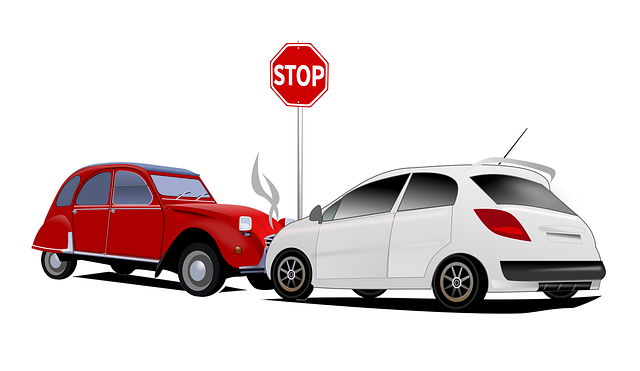Running a home-based business requires tailored insurance policies to mitigate risks like accidents, injuries, property damage, and theft. Key components include general liability for bodily injury/property damage, workers' compensation, and asset protection. Adequate property insurance safeguards against physical losses, while comprehensive coverage protects against legal claims. Understanding exclusions and reviewing policy options ensures tailored protection for business equipment, inventory, and revenue continuity. Efficient claims management through organized documentation and communication speeds resolution.
Running a home-based business presents unique risks that require tailored insurance coverage. As your operation grows, so do potential liabilities—from property damage to customer injuries. Understanding these risks is key to protecting your investment. This guide delves into essential aspects of insurance policies for home-based businesses, focusing on property and liability coverage. Learn why these policies are vital, explore common exclusions, and discover how to enhance your protection with add-on features.
Understanding Home-Based Business Risks

Running a home-based business comes with unique risks that often fall under the radar. Unlike traditional workplaces, home offices lack the structured safety measures and emergency protocols typically found in commercial settings. This increases the potential for accidents, injuries, or damage to property—all of which can be costly to address without proper protection. For instance, a slip and fall incident on your property could result in significant medical expenses and legal liabilities. Similarly, business equipment and inventory stored at home are vulnerable to theft, damage from natural disasters, or accidental loss.
Insurance policies for home-based businesses play a crucial role in mitigating these risks. Comprehensive general liability insurance is essential, covering potential claims against your business for bodily injury or property damage to customers or visitors. Additionally, business owners should consider policies that protect their assets, such as workers’ compensation insurance for any employees and specific coverage for valuable equipment and inventory. Understanding the unique risks associated with operating a home-based business and obtaining adequate insurance is a proactive step towards safeguarding both your venture and personal finances.
Why Property Insurance is Essential

For home-based business owners, having the right insurance policies in place is paramount to safeguarding their assets and future stability. Property insurance, a cornerstone of any comprehensive risk management strategy, plays a pivotal role in protecting against unforeseen events that could disrupt or even destroy the livelihood built within the confines of one’s home office. These events range from natural disasters like fires, storms, or floods to more mundane yet still detrimental incidents such as theft or vandalism.
Insurance policies for home-based businesses specifically cater to these risks by offering coverage for both the physical structures and valuable equipment essential for operations. This includes computers, software, inventory, and other assets that are integral to the business’s daily functions and financial health. By ensuring adequate property insurance, entrepreneurs can mitigate the risk of financial strain or even bankruptcy in the event of a covered loss, allowing them to maintain continuity and peace of mind.
Liability Coverage: Protecting Your Business and Customers

Liability coverage is an essential component of insurance policies for home-based businesses, offering protection against potential risks and legal claims. As a home-based business owner, your operations might attract customers, clients, or visitors to your premises, exposing you to various liabilities. This coverage steps in to shield you from financial loss in case someone gets injured on your property or if you’re found legally responsible for their damages.
It can cover medical expenses, legal fees, and other related costs arising from accidents, slips, falls, or personal injuries sustained by customers or employees. By including liability coverage in your insurance policies for home-based businesses, you demonstrate a commitment to safeguarding both your business interests and the well-being of those interacting with your enterprise.
Types of Property Damage to Consider

When it comes to property damage, home-based businesses must be aware of various potential risks and ensure their insurance policies cover them adequately. These can include physical damage to structures, such as your workspace, from events like fires, storms, or accidental explosions. Also, consider coverage for personal property, including inventory, equipment, computers, and furniture, which are essential for running a successful home-based business.
Insurers often classify property damage into different types, each with its own set of coverages. For instance, “named perils” policies typically outline specific causes of damage like fire, lightning, wind, or vandalism, while “all-risk” policies offer broader protection by covering all causes except those explicitly excluded. It’s crucial for business owners to understand the nuances of these policies and choose one that aligns with their unique needs, ensuring they’re protected against potential losses in an ever-changing business landscape.
Common Exclusions in Home Business Policies

When it comes to insurance policies for home-based businesses, understanding common exclusions is vital. Many standard homeowners’ policies include limitations when a business activity is conducted from home. These exclusions can vary by insurer and policy type but often exclude coverage for business-related injuries or damages. For instance, if a customer slips and falls on your property while visiting as a client, traditional homeowners’ insurance might not cover potential liability claims.
Additionally, policies may not cover business equipment, inventory, or losses resulting from business operations. Home-based businesses should carefully review their insurance contracts to ensure adequate protection. Consider obtaining a separate commercial policy or adding specific endorsements to address these gaps, ensuring comprehensive coverage tailored to your home-based enterprise.
Enhancing Your Coverage: Optional Add-Ons

When crafting insurance policies for home-based businesses, it’s essential to go beyond the standard coverage and explore optional add-ons that cater to the unique risks these enterprises face. These enhancements can provide a safety net against unforeseen circumstances, offering peace of mind for entrepreneurs who juggle multiple roles. For instance, consider adding equipment coverage if you use specialized tools or machinery, which can be crucial in case of damage or theft.
Another valuable add-on is business income continuation, designed to replace lost revenue during periods of disruption, such as natural disasters or civil unrest. This feature ensures your home-based business remains financially stable, allowing for continuity and recovery. Additionally, professional liability insurance protects against claims related to negligence or errors in service, a must-have for consultants, freelancers, and anyone offering expert advice or services.
Navigating Claims Process: What to Expect

When a claim is made against your home-based business, understanding the claims process is crucial for navigating potential risks and ensuring smooth resolution. The first step typically involves receiving notification of the claim from your insurance provider or the claimant directly. This is when you should carefully review the details provided, including the nature of the incident, damages incurred, and any relevant policies that may apply.
The claims process often entails gathering evidence, such as documenting property damage, medical expenses, or business interruption losses, depending on the type of claim. Communication with your insurance company is key; they will guide you through the next steps, which may include filing a formal claim, providing additional documentation, and potentially attending an examination under oath. Staying organized and responsive throughout this process will help ensure a faster resolution and minimize potential liabilities covered by your insurance policies for home-based businesses.
